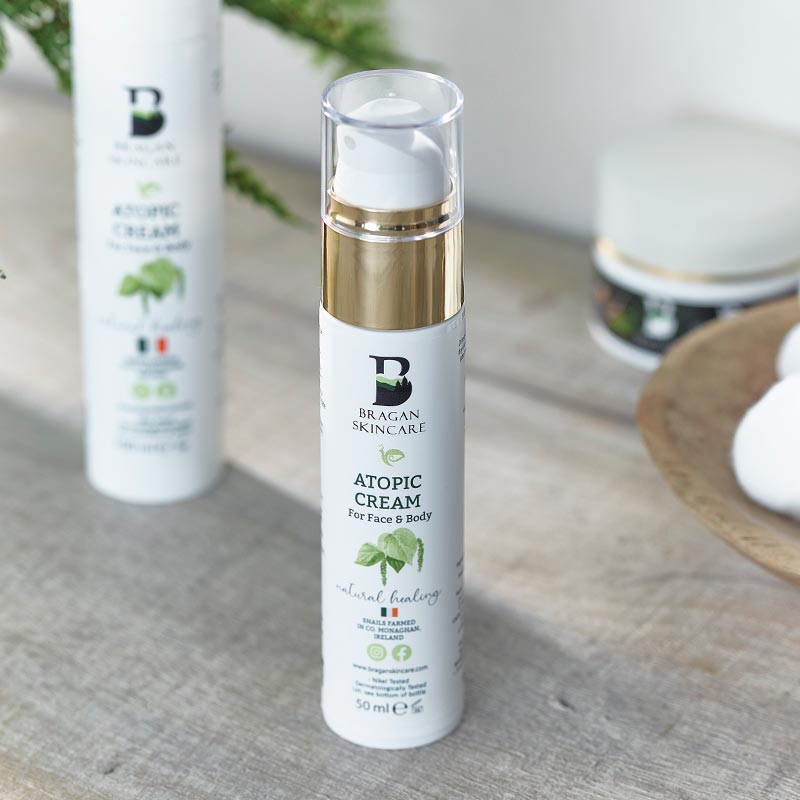Understanding Contact Dermatitis in the Genital Area: Causes, Symptoms, and Treatments
Contact dermatitis in the genital area can be a distressing condition, causing discomfort and irritation. It’s an inflammatory skin reaction that happens when the skin comes into contact with allergens or irritants. Understanding the triggers, symptoms, and possible treatments is essential for effective relief and prevention. With the right care and awareness, managing this sensitive condition becomes much more achievable.

Causes of Contact Dermatitis in the Genital Area
Contact dermatitis in the genital region can cause significant discomfort and distress. Understanding the triggers helps you manage and prevent flare-ups more effectively. Below, we break down the primary causes into practical categories.
Common Irritants and Allergens
Everyday substances can trigger reactions in the sensitive genital area. Here’s a list of common culprits:
- Soaps and detergents: Many contain harsh chemicals that disrupt the skin’s natural barrier.
- Personal care products: Ingredients like fragrances, preservatives, or dyes in creams and washes often irritate.
- Condoms or lubricants: Latex and certain chemicals can be allergenic.
It’s easy to overlook how products interact with delicate skin. Opt for unscented and hypoallergenic alternatives to reduce risks. For more guidance on managing contact dermatitis triggers, check out Contact Dermatitis.
Environmental Factors
Environmental conditions often worsen contact dermatitis genital symptoms. Sweat, friction, and heat work together to harm the skin. Here’s how:
- Sweat: Trapped moisture makes the skin more susceptible to irritants.
- Friction: Tight clothing or prolonged sitting can cause chafing.
- Heat: Warm environments create a breeding ground for inflammation.
To minimise these effects, wear breathable fabrics and avoid tight outfits. It’s a simple step that can prevent irritation.
Underlying Skin Conditions
Pre-existing skin issues can amplify the risk of contact dermatitis. If you have eczema, psoriasis, or fungal infections, the genital area may already be vulnerable. This makes it easier for irritants to break through the skin’s defences.
Addressing these underlying conditions is key to managing contact dermatitis effectively. Consult a dermatologist when dealing with overlapping skin concerns.
By identifying these causes and taking proactive measures, you can significantly reduce discomfort and irritation.
Symptoms of Contact Dermatitis in the Genital Area
Contact dermatitis in the genital area often presents with a range of uncomfortable symptoms. Recognising these symptoms is essential for effective management and treatment.
Physical Symptoms
The physical signs of contact dermatitis can vary, but they are usually immediate and visible. Common physical symptoms include:
- Redness: The affected skin may appear red or inflamed, especially after exposure to a trigger.
- Itching: This is often intense and can worsen with scratching, leading to further irritation.
- Swelling: The area may become puffy or swollen, causing additional discomfort.
- Rash: In many cases, small bumps or a visible rash will develop, sometimes accompanied by blisters.
These symptoms can disrupt daily life, making it difficult to focus on normal activities. If you’re experiencing these indicators, understanding more about Contact Dermatitis can help you identify triggers and manage outbreaks effectively.
Emotional Impact
Living with contact dermatitis in a sensitive area like the genitals doesn’t just affect your body. It can take a toll on mental health.
- Frustration and Isolation: Persistent discomfort can lead to feelings of frustration or withdrawal from social situations.
- Self-Esteem Issues: Visible symptoms, even in private areas, can impact confidence and self-worth.
- Stress and Anxiety: Worrying about flare-ups or their causes can create ongoing emotional strain.
It’s important to address both the physical and emotional challenges of contact dermatitis. Learning about the causes can empower you to take control and improve your quality of life.
Treatment Options for Contact Dermatitis in the Genital Area
Effectively managing contact dermatitis in the genital area involves a combination of treatments and lifestyle adjustments. While mild cases may resolve with simple remedies, more persistent issues may need medical attention.
Topical Treatments

Topical creams and ointments often serve as the primary treatment for contact dermatitis. These treatments can reduce inflammation, soothe itching, and restore the skin barrier. Bragan Skincare’s Atopic Cream is a standout option, known for its gentle yet effective formulation suitable for sensitive areas. Its benefits include:
- Moisturising the skin: Keeps the affected area hydrated and protected.
- Reducing inflammation: Delivers fast relief from redness and swelling.
- Safe for sensitive skin: Minimises the risk of further irritation for delicate regions like the genitals.
Always follow the usage instructions carefully and consult a medical professional for severe cases. Learn more about general considerations for topical treatments by visiting Contact Dermatitis.
Lifestyle Adjustments
Incorporating certain lifestyle changes can significantly reduce flare-ups and improve comfort. Here are some practical tips to implement:
- Choose gentle products: Switch to fragrance-free and hypoallergenic personal care items.
- Wear breathable fabrics: Opt for loose, cotton clothing to minimise friction and sweat.
- Maintain good hygiene: Cleanse the genital area with lukewarm water and avoid overwashing.
- Avoid known triggers: Identify and eliminate allergens or irritants from daily use.
Adopting these habits not only helps manage contact dermatitis but also prevents recurring symptoms.
When to Seek Professional Help for Contact Dermatitis in the Genital Area
While many cases can be managed at home, some situations require professional guidance. Signs that you should consult a dermatologist include:
- Severe or worsening symptoms: Persistent redness, swelling, or blisters that don’t improve.
- Suspected infections: Signs like pus, unusual odour, or intense pain may indicate a secondary infection.
- Recurring episodes: Frequent flare-ups despite preventive measures.
Timely intervention can prevent complications and provide relief tailored to your specific needs. Explore more about when to escalate care on Contact Dermatitis.
By understanding these treatment options, you’ll be better equipped to manage contact dermatitis effectively.
The Role of Snail Mucin in Healing
Snail mucin has gained popularity for its remarkable ability to aid skin healing. It’s a natural substance with numerous benefits for those dealing with sensitive or compromised skin, including conditions like contact dermatitis in the genital area. Its unique properties make it a gentle yet effective option for maintaining the skin’s health.
Benefits of Snail Mucin
Snail mucin is packed with nutrients that provide multiple benefits for skin repair and hydration. Here’s a closer look:
- Hydration: It contains mucopolysaccharides, which help retain moisture and keep the skin hydrated. This can reduce discomfort caused by dryness.
- Skin Repair: Its high concentration of glycoproteins and hyaluronic acid supports cellular regeneration, essential for healing damaged skin barriers.
- Anti-Inflammatory: The mucin holds bioactive compounds that reduce inflammation, easing redness and irritation often associated with contact dermatitis.
- Promotes Healing: Snail mucin boosts skin cell turnover, which helps repair damaged areas faster. You can learn more about how it aids in healing by visiting Contact Dermatitis.
The combination of these properties makes snail mucin particularly effective for sensitive areas requiring gentle care. Its ability to both soothe and restore the skin makes it a versatile option in skincare.
Incorporating Snail Mucin into Your Routine
Integrating snail mucin into a skincare routine is straightforward and can be highly beneficial, particularly for treating delicate areas. Here’s how you can use it:
- Choose the Right Product: Look for trusted products that are fragrance-free and dermatologically tested to minimise irritation. Ensure the snail mucin concentration is adequate for visible results.
- Cleanse Gently: Before applying any product, wash the area with lukewarm water and a mild cleanser to maintain the skin’s natural moisture balance.
- Patch Test: Apply a small amount of snail mucin to another sensitive area to ensure your skin responds positively.
- Use Sparingly in Affected Areas: Focus only on the irritated zones. A thin layer of product is enough to deliver its benefits without overwhelming sensitive skin.
- Pair with a Moisturiser: For contact dermatitis in the genital area, combining snail mucin with a hypoallergenic moisturiser can improve the skin’s ability to repair itself.
As always, consistency is key. To address more causes and treatments for such skin issues, visit Contact Dermatitis.
Conclusion: Contact Dermatitis in the Genital Area
Managing contact dermatitis in the genital area requires proper care and attention. Identifying triggers, addressing symptoms, and using effective treatments are key steps towards relief.
For those seeking a dependable remedy, Bragan Skincare’s Atopic Cream provides a gentle yet effective solution, ideal for sensitive regions. Explore additional insights and remedies on Contact Dermatitis.
By combining practical measures and specialised products, you can regain comfort and prevent future flare-ups. Stay proactive with your skincare routine and consult professionals if symptoms persist.
Atopic Cream for Eczema, Psoriasis & Dermatitis | Fragrance-Free Barrier Care
Living with eczema, psoriasis, or dermatitis means your skin needs calm, consistent support — not harsh treatments. Bragan Skincare’s Atopic Cream is a fragrance-free, steroid-free barrier cream designed to soothe dry, itchy, irritation-prone skin while supporting long-term skin comfort. How to use: Apply a thin layer to clean, dry skin once or twice daily. Massage gently until absorbed. Use consistently for best results. Allergy notice: Contains snail mucin. If you have a shellfish allergy, avoid use and patch test before wider application. Stock up & save: Choose a larger size or add multiple items to your basket for better value.…
Featured Bragan Skincare Products
-
€32.51 – €81.30Price range: €32.51 through €81.30Select options This product has multiple variants. The options may be chosen on the product page
-
€81.30Select options This product has multiple variants. The options may be chosen on the product page

